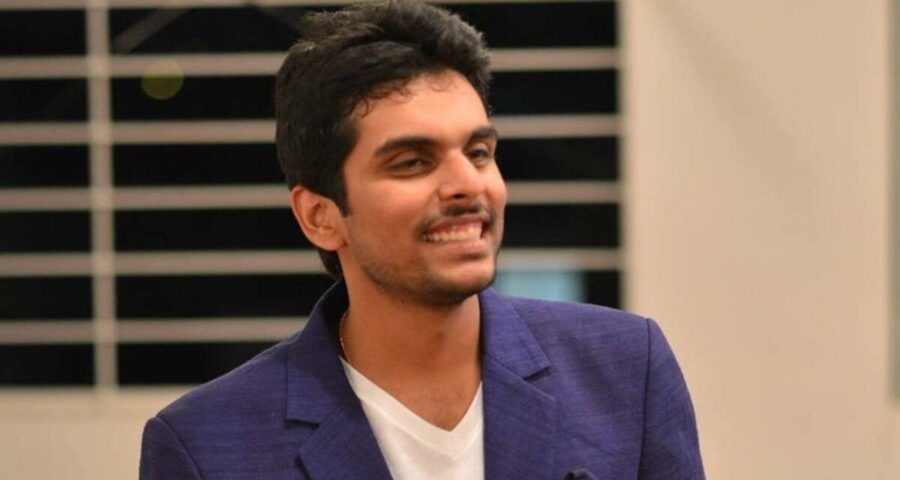The Covid war room set up by the youngsters in Hyderabad not only helped supply essential items and financial aid but also had a doctor running a tele-consultation helpline for Covid-19 patients.
When the second wave of the Covid-19 pandemic hit the country, all that Karamchati Sriharsha could see on his Twitter feed was frantic calls of help from patients and their families who were running from pillar-to-post in search of oxygen, hospital beds or aid.
It is then that the Hyderabad-based techie conceptualised setting up a Covid war room to help those in need.
Over the last six weeks, Sriharsha and a group of his friends have attended over 1,400 distress calls and raised over Rs 50 lakh to help those in need. The success of the Covid war room, which has around 500 volunteers working in 12 different time zones, lies in transparency and effective communication which attracted passionate donors all across the world.
27-year-old Sriharsha, an alumnus of the International Institute of Information Technology in Hyderabad (IIIT-H) and founded of tech start-up Questbook, said the need of setting up a helpline struck him when he realised how the attendants and family members of Covid patients are drained out, both emotionally and financially. “The concept aimed at taking the emotional and mental load off the patients’ attendants while the team hand-held them till their request was resolved. A technology-backed system enabled the volunteers, armed with crowdsourced funds, and information to take each request they received to its logical conclusion,” he added.
Mohit Jain from Vadodara, another IIIT-H alumnus and now a data scientist with a US-based firm, was one of the first to associate himself with the war room. When the number of volunteers rose from 15 to over 300 in a matter of hours, it was nearly impossible to keep track of requests and coordinate among themselves. The team then reached out to Slack, an American business communication platform, which agreed to provide them with a premium membership considering the volunteer work they proposed.
“We created slack bots that would automate request creation, process them, and add status to every request regarding whether it was being reviewed, in progress, or been resolved. We also have automated bots which curate information from online sources and verify them,” Jain said. “To ensure the progress of requests, a data studio dashboard was created. The team created its databases for supplier vendor contacts, donors. When we were unable to close many requests, we focussed on onboarding more volunteers,” he added.
This initiative quickly gained traction, thanks to social media, and more than 270 people joined the war room to offer similar online services. Last month itself, over Rs 60 lakh was raised via donations.
Shashank Gandrapu, a chartered accountant and founder of Goodclap crowdfunding platform, joined the team to help streamline donations. Heading the finance team of the war room, the 29-year-old said that any fundraiser campaign depends largely on a good network and the credibility of people or institutions involved.
“What the war room has done extremely well is that it communicated effectively with the donors about the results. They feel really happy about their contribution and that is when they start to pool funds from their networks,” he said. “This war room is now a huge network. With so many volunteers coming from good places, the economies of scale start to work,” he added.
Gandrapu, who is also tasked with ensuring procurement of supplies from vendors, added that funds from the war room were transferred directly to hospitals, vendors, or the beneficiaries.
However, the war room is not only about supplies and financial aid.
An MBBS graduate from Gandhi Medical College in Hyderabad, Saisree Simhadri is among the doctors in the team managing tele-consultation for mild and moderate Covid patients undergoing treatment at their homes. “I noticed that a lot of callers, especially from rural areas, were in a state of panic because they did not have access to doctors or diagnostic centres once they tested positive for coronavirus. We ask them to first calm down and tell them how to monitor their health and suggest hospitalization only when necessary,” Simhadri said.
At the peak of the second wave, she used to receive 20 to 30 phone calls in two or three hours in the evening. “Keeping the volunteers motivated became a challenge especially when a patient, while waiting for their requests to be resolved, passed away. When volunteers are attending to requests for several hours, it is important to keep the energy high and prevent emotional exhaustion,” said Apoorva Srivastava, a second year MS student at IIIT-Hyderabad. Srivastava heads the core organizing team at CWR and ensures requests are not left unresolved and attaches more volunteers when necessary.
The entire batch of volunteers is divided into 12 subgroups based on regions of origin of requests and their nature. Separate groups handle requests for oxygen cylinders, oxygen concentrators, blood plasma, blood units, hospital beds, ICUs, and ventilators.
“We learned it was important to appreciate each other. We celebrated when we succeeded and cheered up volunteers when they felt low. Although we are not known to each other, we developed a good bond and have become good friends,” she said.
From receiving 120-140 requests daily during the peak of the second wave, the distress calls have gone down to 20-30 a day, Jain added.
Source: Read Full Article



